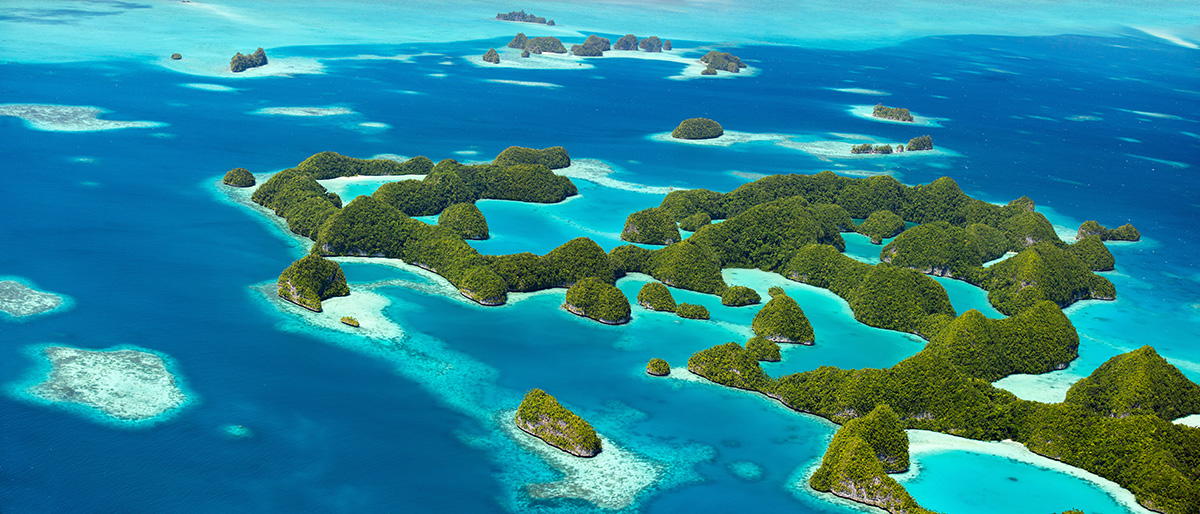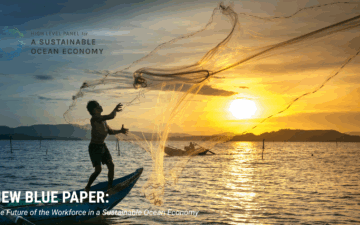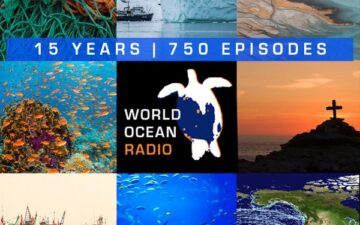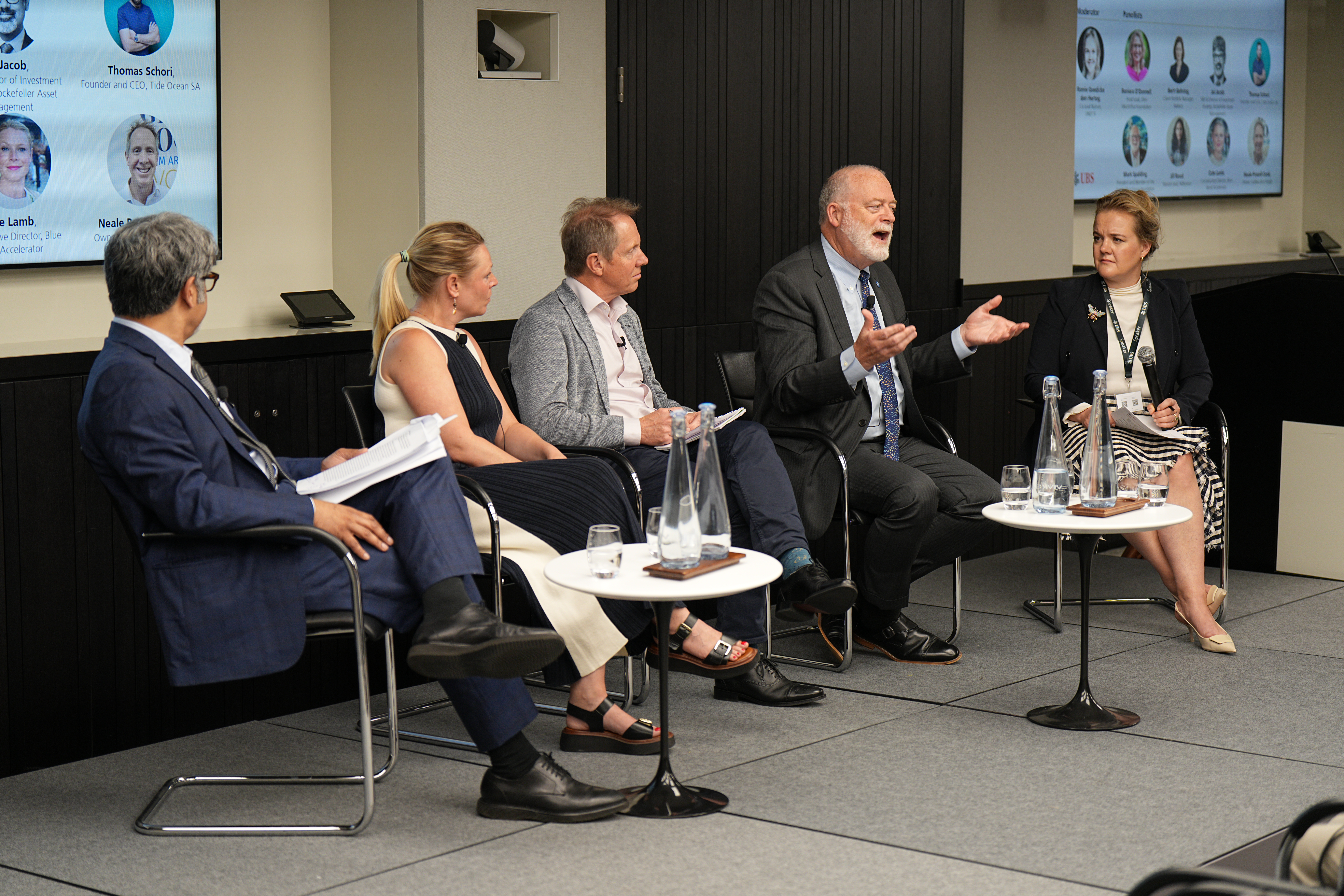Proposal Request Synopsis
The Ocean Foundation is seeking an individual to contract as a local coordinator for a project to advance ocean observing capacity in the Federated States of Micronesia (FSM), either independently or in conjunction with their official duties at an institution with a complementary mission. This request for proposals is part of a larger project that seeks to build long term capacity for ocean and climate observations in FSM through the co-design of in situ observing projects, facilitation of connections with the local ocean science community and partners, procurement and delivery of observation technologies, provision of training and mentorship support, and funding for local scientists to operate observing assets. The larger project is led by the United States National Oceanographic and Atmospheric Administration’s (NOAA) Global Ocean Monitoring and Observing Program, with support from the Pacific Marine Environmental Lab.
The selected coordinator will support the project by identifying existing ocean observing programs that compliment the project goals, connecting project partners to key local institutions and agencies whose work is related to ocean observing, advising on project design,
assisting with coordination of community meetings and workshops, and communicating the outputs of the project locally.
Eligibility and instructions to apply are included in this request for proposals. Proposals are due no later than September 20th, 2023 and should be sent to The Ocean Foundation at [email protected].
About The Ocean Foundation
As the only community foundation for the ocean, The Ocean Foundation’s 501(c)(3) mission is to support, strengthen, and promote those organizations dedicated to reversing the trend of destruction of ocean environments around the world. We focus our collective expertise on
emerging threats in order to generate cutting edge solutions and better strategies for implementation.
The Ocean Foundation, through its Ocean Science Equity Initiative (EquiSea), aims to increase equitable distribution of ocean science capacity by providing administrative, technical, and financial support to on the ground partners. EquiSea has worked with partners in the Pacific to
advance ocean science including through the provision of GOA-ON in a Box ocean acidification monitoring kits, hosting of online and in-person technical workshops, the funding and establishment of the Pacific Islands Ocean Acidification Centre, and direct funding of research activities.
Project Background & Goals
In 2022, The Ocean Foundation began a new partnership with NOAA to improve the sustainability of ocean observing and research efforts in FSM. The broader project involves several activities to strengthen ocean observing, science, and service capacity in FSM and the broader Pacific Islands region, which are listed below. The selected applicant will primarily focus on activities for Objective 1, but may assist with other activities as interested and/or needed for Objective 2:
- Co-developing and deploying ocean observing technologies to inform local marine weather, cyclone development and forecasting, fisheries and the marine environment and climate modeling. NOAA plans to work closely with FSM and Pacific island regional partners, including The Pacific Community (SPC), the Pacific Islands Ocean Observing System (PacIOOS), and other stakeholders to identify and co-develop the activities that will best meet their needs and U.S. regional engagement objectives before any deployments take place. This project will focus on engaging with regional observing partners and other stakeholders throughout the tropical Pacific to evaluate current
capabilities and gaps in the observing value chain including data, modeling, and products and services, then prioritize actions to fill those gaps. - Establishing a Pacific Islands Women in Ocean Sciences Fellowship Program to increase and support opportunities for women in maritime activities, consistent with the Regional Strategy for Pacific Women in Maritime 2020-2024, developed by SPC and the Pacific Women in Maritime Association. This women-specific capacity development effort aims to foster community through fellowship and peer mentorship and to promote the exchange of expertise and knowledge among women ocean practitioners throughout the tropical Pacific. Selected participants will receive funding to support short-term projects to advance ocean science, conservation, and education goals in FSM and other Pacific Island countries and territories.
Role of the Contractor
The selected ocean observations coordinator will be a critical partner in ensuring the success of this project. The coordinator will serve as a key linkage between NOAA, The Ocean Foundation, and the local ocean science community and partners, ensuring that this effort best meets the technical and data needs of FSM. Specifically, the ocean observations coordinator will engage in activities under two broad themes:
- Co-design, capacity development, and implementation of ocean observing
- With TOF and NOAA, co-lead an assessment of existing ocean science activities taking place in FSM in order to catalog complementary programs and institutions and identify potential implementation partners
- With TOF and NOAA, co-lead a series of listening sessions to identify ocean observing needs in FSM that could be addressed through this project, including data needs, priorities, and the applications of the resulting observing project
- Support the identification of FSM-based institutions or individual researchers who will receive ocean observing equipment and training, including through outreach to prospective partners
- Support TOF and NOAA in assessing the feasibility of specific ocean observing technologies that would address needs identified during listening sessions by working to confirm usability, practicality, and maintainability in the context of local resources and expertise
- Provide assistance for the planning, logistical arrangements, and delivery of a co-design workshop in FSM focused on selecting final options for ocean observing technologies
- Provide in-region recommendations to support TOF procuring and shipping equipment to FSM
- Assist TOF and NOAA with the design and delivery of online and electronic training modules, coaching sessions, and best practice guides that will enable successful operation of ocean observing assets in FSM
- Assist TOF and NOAA with the design, logistical arrangements, and delivery of a hands-on training workshop for selected scientists in FSM
- Public outreach and community engagement
- Create a communications plan for communicating progress and outcomes of the project to relevant local groups
- Implement local education and engagement activities as outlined in the communications plan, with a focus on the value of ocean observations
- Assist in communicating project outcomes through conference presentations and written products
- Support ongoing communication between project partners and regional and local stakeholders to ensure project continually incorporates and responds to local needs
Eligibility
Applicants for this coordinator position must meet the following requirements:
Location
Priority will be given to applicants based in the Federated States of Micronesia to facilitate on-the-ground coordination and meet with the community. We will consider individuals based in other Pacific Island countries and territories (particularly the Cook Islands, French Polynesia, Fiji, Kiribati, New Caledonia, Niue, Palau, Papua New Guinea, RMI, Samoa, Solomon Islands, Tonga, Tuvalu, and Vanuatu), or in Pacific-bordering countries such as the U.S., Australia, or New Zealand. All applicants should demonstrate familiarity with the ocean science community in FSM, particularly individuals that anticipate they will periodically travel to FSM in the course of other work.
Knowledge of and engagement with the ocean science community
The coordinator ideally will demonstrate a working knowledge of oceanography, ocean observing activities and measuring global ocean conditions & variables such as ocean temperature, currents, waves, sea level, salinity, carbon, and oxygen. We will also consider applicants interested in oceanography but without an extensive background in this field. Either knowledge or interest can be indicated through prior professional, educational, or volunteer experiences.
Demonstrated connections to stakeholders in FSM
The coordinator must demonstrate a connection to FSM and the ability and/or willingness to identify and connect with stakeholders in relevant organizations, e.g., governmental offices, coastal villages, fishers, research institutions, environmental NGOs, and/or places of higher education. Preference will be given to individuals who have previously lived or worked in FSM, or who have worked with FSM partners directly.
Experience in outreach and community engagement
The coordinator should demonstrate a working knowledge of and/or interest in science communication and community engagement, including any relevant experience in writing or presenting for diverse audiences, developing outreach or communications products, facilitating meetings, etc.
Employment status
This position is not expected to be full time and a contract will be established to outline deliverables and the timeline. Applicants may be independent or employed by an institution that agrees to disburse the determined payment as part of the coordinator’s salary and assign job duties in line with the activities listed above.
Communication tools
The coordinator must have their own computer and regular access to the internet to attend virtual meetings with project partners and access/contribute to relevant documents, reports, or products.
Financial and Technical Resources
The contractor selected to assume the role of ocean observations coordinator will receive the following financial and technical resources from The Ocean Foundation over the two-year project duration:
- $32,000 USD to fund one part-time contract position that will conduct the activities above. This is estimated to be approximately 210 days of work across two years, or 40% FTE, for a salary of $150 USD per day, inclusive of overhead and other costs. Approved expenses will be reimbursed.
- Access to existing templates and models for carrying out similar coordination efforts.
- Payment schedule will be on a quarterly basis or as mutually agreed upon by both parties.
Project Timeline
This project is currently set to run through September 30, 2025. The deadline to apply is September 20, 2023. Follow-up questions or interviews may be requested of candidates in September 2023. The contractor will be selected in September 2023, at which point a contract will be mutually established prior to becoming involved in the planning and delivery of all other program activities as listed in the project description.
Proposal Requirements
Application materials must be submitted via e-mail to [email protected] with the subject line “Local Ocean Observations Coordinator Application.” All proposals should be a maximum of 4 pages (excluding CVs and letters of support) and must include:
- Institution Name(s)
- Point of contact for application including an email address
- A detailed summary of how you meet the eligibility to serve as the ocean observations coordinator, which should include:
- An explanation of your experience or expertise with regards to outreach, community engagement, and/or partner coordination in FSM or other Pacific Island countries and territories.
- An explanation of your knowledge or interest with regards to ocean observing or oceanography in FSM or other Pacific Island countries and territories.
- If you will be employed through a separate organization/institution, an explanation of your institution’s experience in supporting ocean sciences in FSM and/or other Pacific Island countries and territories.
- An explanation of your previous experiences with potentially-relevant stakeholders to this project or proposed steps to build the connections that will allow these important local groups to have a voice in this project.
- A statement demonstrating your familiarity with FSM (e.g., current or former residency within the region, anticipated frequency of travel to FSM if not currently a resident, communication with relevant stakeholders/programs in FSM, etc.).
- CV describing your professional and educational experience
- Any relevant products that highlight your experience in outreach, science communication, or community engagement (e.g., website, flyers, etc.)
- If you will be employed through a separate organization/institution a letter of support should be provided by the institution’s administrator that affirms:
- During the duration of the project and contract, job duties will include the activities described above for 1) Co-design, capacity development, and implementation of ocean observing and 2) Public outreach and community engagement
- The payment will be allocated towards supporting the individual’s salary, minus any institutional overhead
- The institution intends to employ the individual until September 2025. Note that if the individual is no longer employed at the institution, the institution may nominate a suitable replacement or the contract may end at the discretion of either party, per the agreed-upon contract terms
- Three references who have worked with you on similar initiatives that The Ocean Foundation can contact
Contact Information
Please direct all responses and/or questions about this RFP to The Ocean Foundation’s Ocean Science Equity Initiative, at [email protected]. The project team would be happy to hold information calls/zooms with any interested applicants prior to the application deadline if requested.







